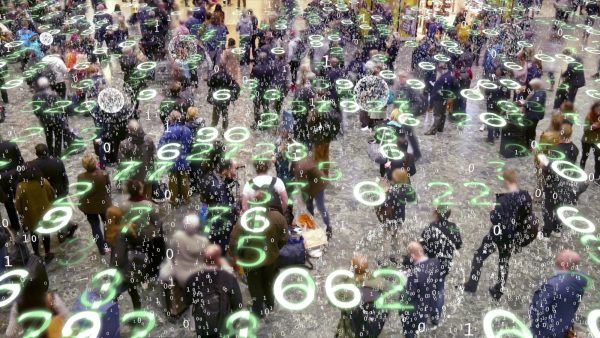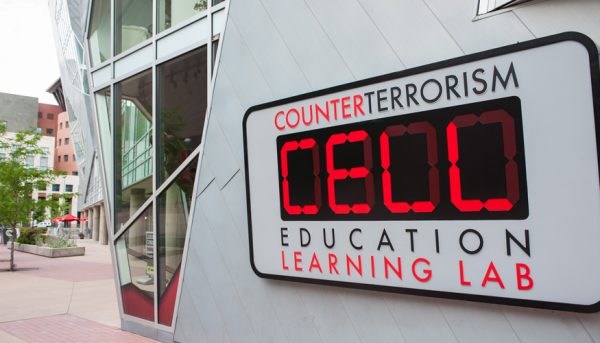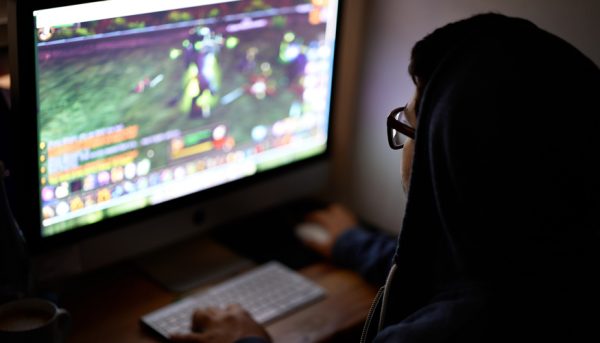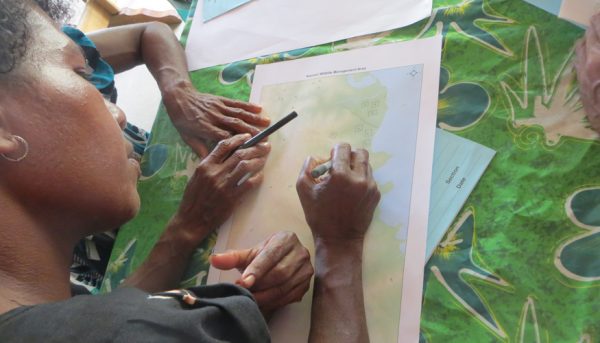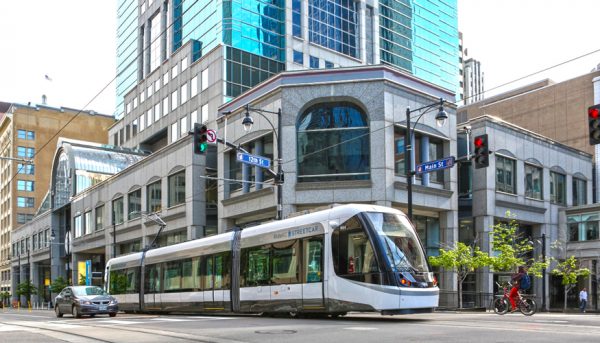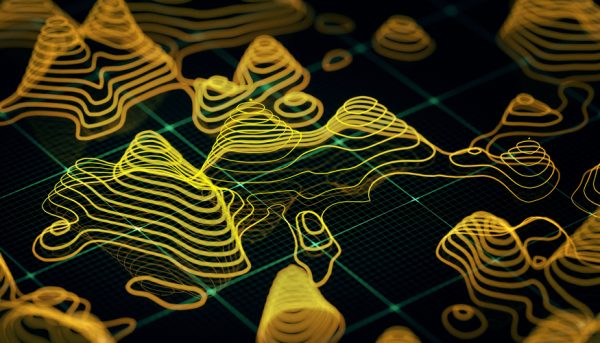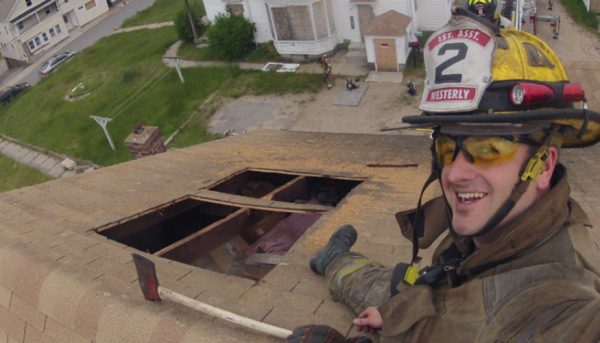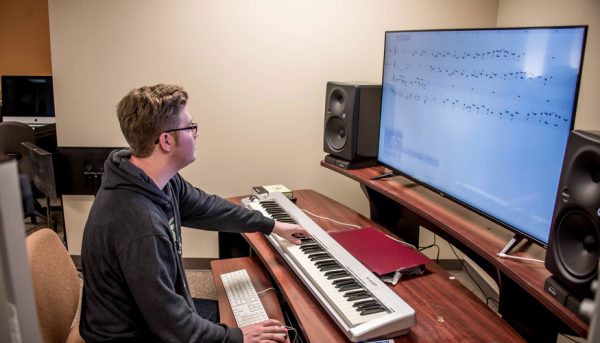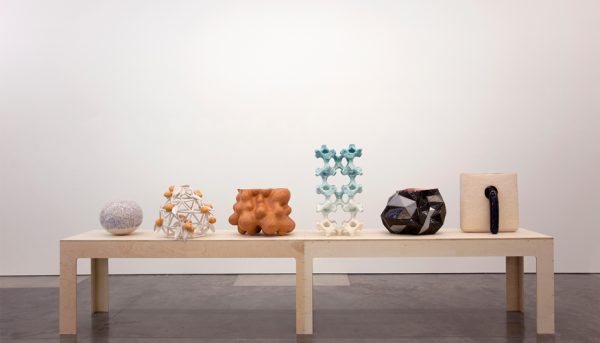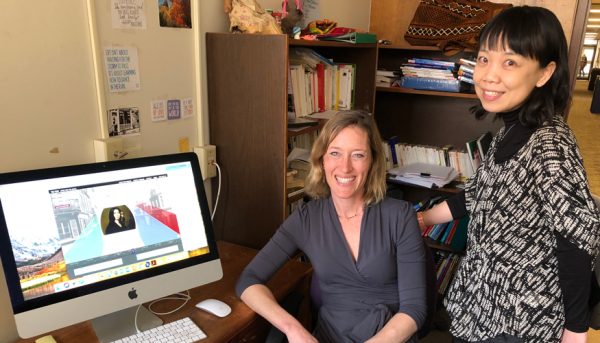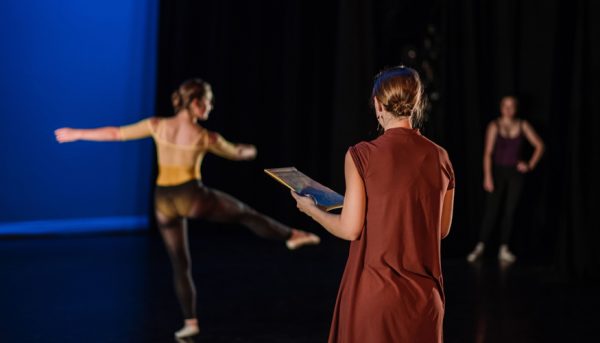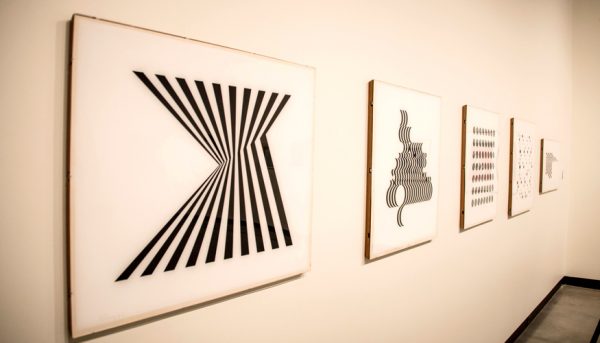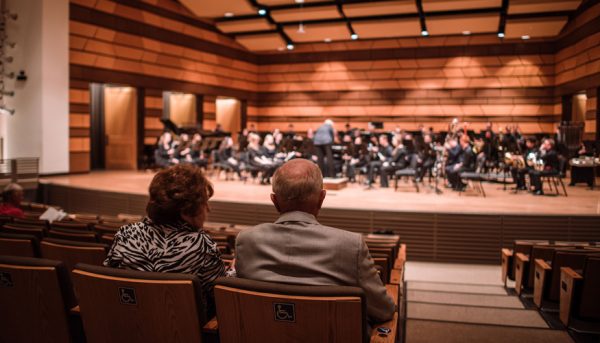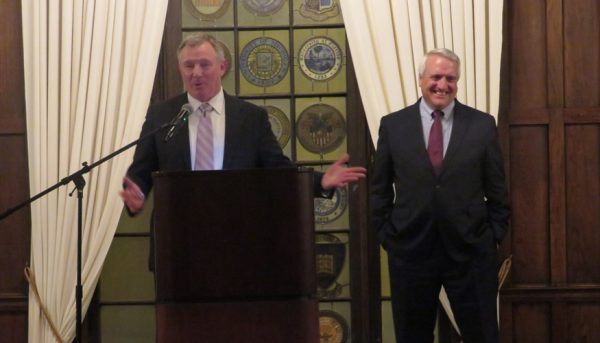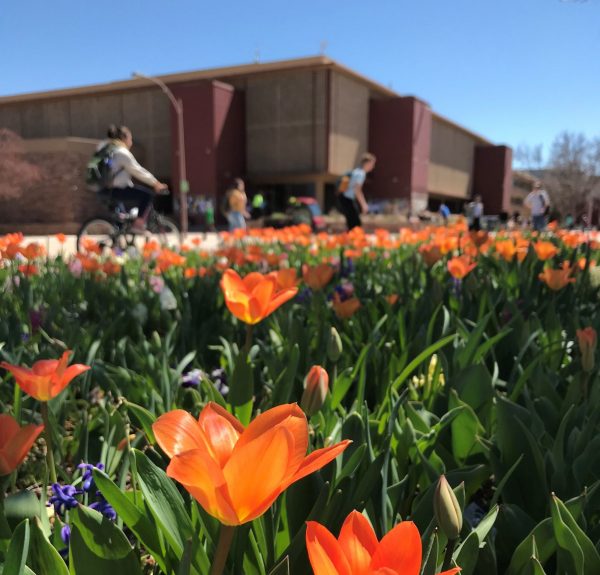Spring 2019
Lenses of the Liberal Arts: Technology
How our disciplines in the arts, humanities, and social sciences help us identify, analyze, and understand our world from a variety of perspectives.
Scroll down to see this issue's featured stories
A liberal arts lens: technology’s role in society past, present, and future
We’re aware of the role technology plays in shaping our individual lives, but how does technology affect and influence our society and our future? The specific skills and tools unique to the liberal arts can provide understanding as well as a way to navigate the ways technology does (or doesn’t) advance the human experience.
This Content Is Not Available in Your Country (Yet)
Getting locked out can happen not just from your car or your home. Getting locked out can happen online when you’re not able to view certain films or media. Geoblocking, or regional lockout, is a way that media distribution companies protect their films. While we may think that the internet and other technologies have created a global village, media distribution practices and other uses of technology have prevented that global interconnection.
Recognizing and reporting signs of terrorism can help prevent attacks
International Studies | Political Science
Technology has played a large role in the growth of terrorism through recruitment of terrorists worldwide or through cyberattacks on critical infrastructure. Jordan Clark (’11) trains people to recognize warning signs of possible terrorist or criminal acts on social media and in other settings through the Community Awareness Program at the CELL in Denver, Colo.
Artificial Intelligence, the Future of Work, and Inequality
One of the most spectacular facts of the last two centuries of economic history is the exponential growth in GDP per capita in most of the world. This economic progress, unprecedented in human history, would be impossible without major breakthroughs in technology. Many believe we are on the verge of a new technological revolution that will see Artificial Intelligence (AI) automating a majority of tasks that are currently performed by humans. Should we see AI as liberating or as a destructive force?
Understanding identity in online worlds
Journalism and Media Communication
What is the difference between ‘real life’ and ‘virtual life’? How do we construct identity? How do we create social norms? For many years, experts have studied how social norms are created, and with the advent of the internet and online gaming, researchers are now exploring the way people interact with, use, and respond to technology as they perform and craft those identities.
Using Geography to Explore Land Policy and Management
Geographers use a variety of technologies to investigate human-environment interactions: remote sensing data, satellite imagery, aerial photographs, lidar, GIS, and fieldwork. But they also engage collaboratively with communities to understand the impact of land-use and land-cover changes, all of which can assist with land policy and management decisions.
Toward a New Economy: Cryptocurrency and International Development
Bitcoin, the most popular cryptocurrency, has been touted as an amazing solution for those without easy access to a traditional bank. While it certainly opens up opportunities for people in developing nations who otherwise have to rely on third parties to help them receive and transfer money, it is not a cure-all. Plus, there are environmental implications to running all of the servers needed to mine Bitcoin. So, are cryptocurrencies worth it?
Drone-captured protest art about social inequality in the Choice City
Fort Collins is often called the “Choice City,” but for whom? In Dr. Josh Sbicca’s Social Movements course, students are asked to look at the social inequalities in Fort Collins and create protest art as a result. By using drones to capture images, sounds, and voices and editing software to create meaning, tell a story, and call for social change, students are using technology to take a new look at the Choice City.
How We Do Data in the City of Kansas City
Eric Roche (B.A. ’11) has a C-level job at a city that many people have never heard of: Chief Data Officer. Roche’s job is to uncover data that is valuable in decision making, and empower the city’s staff and leadership to make quick, data-informed decisions resulting in employees that are more efficient at their jobs and residents get better services delivered.
Building Maps of the Past with New Technologies
Robert Ower (’18) uses the research skills from history classes to build maps and create ‘mappable data’ for high tech industries. Ower’s path from work to college to a meaningful career reflects the maps that he makes with ArcGIS. Layers of skills, research, patience, effort and luck are the mappable data. His emerging career is a world of his own creation.
Rhetoric and Risk: From firefighter to digital rhetorician
Tim Amidon is both a firefighter and a rhetorician, examining the ways in which communication, literacy, and technology are used in high-risk, high-stress situations. Amidon’s research investigates how communication and the various technologies we use help us to create and participate in the world around us.
Healthcare, social media, and a web of moral issues
The Internet has changed the landscape in which we, as humans, relate, and ethicists need to keep pace. With increases in anxiety and depression, the creation of echo chambers of information, and access to tele-medicine for rural communities, bioethicists like Dr. Moti Gorin are now looking at how online technologies affect human health and well-being.
The Sound of Technology
School of Music, Theatre, and Dance
While recorded sound was the ‘first big thing’ as far as technology’s impact on music, everything from the synthesizer to the computer and composition software has had an impact on how music is composed, created, and shared. Modern technologies in the classroom and in the performance halls at the University Center for the Arts allow music students and music patrons to experience state-of-the-art music performances.
Technique and Technology In Art
Technology has always been fundamental to the crafts which are rooted in the use of some tool. The Greek root tekhne— an art, skill, craft in work; method, system, an art, a system or method of making or doing — is about systematizing, standardizing, and organizing. For Del Harrow, associate professor of pottery, throwing on the wheel is about practice and a development of skill, repetition of movements, and involvement in a kind of ritual practice.
Technology provides new ways to teach languages and cultures
Languages, Literatures and Cultures
In an increasingly connected global society, fluency in a second language is an important skill in both the job market and for the cognitive benefits reaped by the language learner. Through technology and increased access to authentic language materials such as manuscripts, music, film, and video, students have greater opportunities to access many learning styles and engage with a language and culture more creatively and deeply.
Technology’s Hand in Interdisciplinary Studies
Interdisciplinary Liberal Arts
We are living in a tech age that grants us access to more information than ever before, but we can also find ourselves overwhelmed by that very same material. A major in interdisciplinary liberal arts helps students see the connection between all of the information they absorb and a type of systems thinking that guides interdisciplinary work, teaching students how to manage the flow of information and find connections where none before existed.
Arts Management in the Digital Age
Arts Management programs began in the 1970s, following the establishment of the National Endowment for the Arts in 1965, which stressed the need for leaders in the arts. Since then, technological advances have led to improvements in understanding and building audience engagement and navigating the necessity of marketing for artists in the 21st century.
The intersection of art and technology
The Gregory Allicar Museum of Art
At the Gregory Allicar Museum of Art, art and technology continually intersect. The spring 2019 exhibition, Off Kilter, On Point: Art of the 1960s from the Permanent Collection, encapsulated ways in which technology and art are interrelated by featuring a decade where that idea came into focus.
The Stories Behind the Seats
The Name A Seat campaign at the University Center for the Arts raises scholarship funding for Music, Theatre, and Dance students. Meet some of the alumni and friends who have named a seat in honor of their educational experience, their loved ones, and as a tribute to faculty.
Changing Lives Through Law
College of Liberal Arts | Political Science
Political Science alumnus, Bill Leone (’78), came to CSU for the debate program and has built a career in law, including civil trial attorney, federal prosecutor, and United States Attorney for the District of Colorado. He received the Career Distinction in Law Award from his peers in Feb. 2019.
College of Liberal Arts Spring 2019 News
Updates, retirements, alumni career data, and award winners from the College of Liberal Arts.

